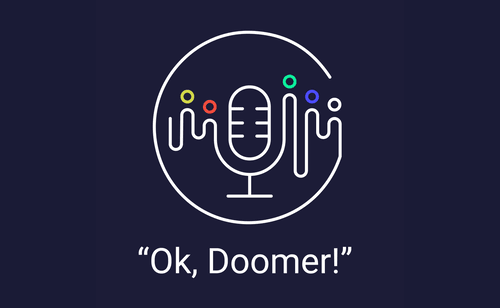
Welcome to “Going Viral”, the fourth episode of “Ok Doomer!” the podcast series by The European Leadership Network’s (ELN) New European Voices on Existential Risk (NEVER) network. Hosted by the ELN’s Policy and Impact Director, Jane Kinninmont, and the ELN’s Project and Communications Coordinator, Edan Simpson, this episode will examine the existential and global catastrophic threats posed by new biological technologies.
Jane kicks off the episode in “What’s the Problem?” Where we also hear from Jasper Götting, a research fellow in the biosecurity team of Convergent Research and a member of our NEVER network, whose work focuses on road mapping technical biosecurity interventions, and technological mitigation techniques against biological risks, such as how we could potentially disinfect the air to guard against future pandemics.
Jasper breaks down the different types of biological risks, including natural versus engineered pathogens, natural spillovers, accidental releases, and deliberate releases, as well as a discussion on what previous pandemics, including SARS and COVID, taught us when preparing for potential future pandemics.
Edan’s “How To Fix It” panel features Angela Kane, a member of the ELN’s Senior Network with over 35 years of experience working for the United Nations, most recently as the assistant secretary general for political affairs and the High Representative for disarmament. Angela now works as a senior advisor to the Nuclear Threat Initiative, primarily supporting them on their bio initiatives to reduce global catastrophic biological risks.
She’s joined by NEVER member Anemone Franz, a physician with experience in pandemic preparedness and biosecurity. Anemone is an Emerging Leaders in Biosecurity Fellow at John Hopkins Centre for Health Security and has previously worked on vaccine platform development.
Lastly, Dr. Emil Iftekhar rounds up the panel. He recently graduated from his PhD and is currently working as a political affairs intern at the United Nations Office for Disarmament Affairs at the Implementation Support Unit of the Biological Weapons Convention in Geneva, Switzerland.
The panel discusses whether or not world leaders have learnt the right lessons from COVID-19, the current state of global biological threat governance at organisations such as the UN, and what’s needed in terms of public sector, private sector, and governmental collaborations to properly screen and mitigate the existential risks posed by biological threats – especially in the context of other technologies like AI and synthetic DNA.
Moving on to “Turn Back The Clock”, where we look back to a time in history when humanity was faced with a potential existential threat but pulled back from the brink of destruction. On today’s episode, Jane is joined by Bekki Field, a Senior Associate Fellow at the European Leadership Network and a former head of pandemic preparedness for the UK government. They discuss the links between pandemics and existential threats, observations on disinformation and public trust, as well as the political, societal and economic benefits of pandemic prevention and preparedness.
Finally, as always, the episode is wrapped up in “The Debrief,” where Jane and Edan review the episode and all their guests to make sense of everything covered.
Catch up on previous episodes, and make sure to subscribe to future episodes of “Ok Doomer!”
The opinions articulated above represent the views of the author(s) and do not necessarily reflect the position of the European Leadership Network or any of its members. The ELN’s aim is to encourage debates that will help develop Europe’s capacity to address the pressing foreign, defence, and security policy challenges of our time.







